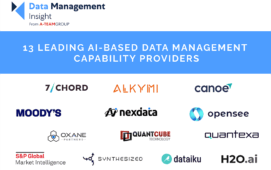The Regulatory Oversight Committee (ROC) of the global legal entity identifier (LEI) initiative has endorsed the accounting consolidation approach as a first step for the development of much needed relationship data for the LEI. It has also provided more detail on the selection of board members for the LEI Foundation that will operate the Central Operating Unit and given credence to pre-LEIs issued by pre-Local Operating Units.
The issue of LEI relationship data has troubled the industry for some time as without enough data the global LEI system will fail to meet its aim of measuring and monitoring global systemic risk. For financial firms, lack of detail on LEI relationship data has made it difficult to build systems that will be certain to fit in with the global model once it is finalised.
Pushing this issue a little further down the track, the first progress report of the ROC, which was set up as a governance framework for the LEI system and held its initial meeting in Toronto at the end of in January 2013, states that high quality analysis and recommendations have been prepared by the Private Sector Preparatory Group (PSPG) on relationship data to complement previous work by the Financial Stability Board’s (FSB) Implementation Group, a group that was closed when the ROC took over responsibility for LEI development from the FSB in January.
The progress note reports decisions made at the Toronto meeting and continues: “The ROC endorsed the accounting consolidation approach as a first step for development of the LEI relationship data, while emphasising the importance of continuing to develop a long-term flexible and robust system, which remains the ultimate objective of the committee. The Committee on Evaluation and Standards [set up to support the ROC] will take this work forward on behalf of the ROC to operationalise the approaches and will liaise closely with the PSPG on this important work”
While the ROC has made a first move on the issue of relationship data it won’t rest here, but has not detailed an ongoing schedule for development, again leaving financial firms short of detail on final requirements.
The January ROC meeting also discussed the LEI Foundation. It confirmed broad selection criteria for the initial board set down by the FSB and covering a range of technical skills, sectoral experience and geographical balance, and moved on to set up a working group to develop the selection process, provide a timeline and sequence for soliciting nominations, and finalise the selection criteria.
Turning to pre-LEIs and pre-LOUs, the ROC progress note nods in the direction of pre-LOUs becoming LOUs in the global system and recognises pre-LEIs as an interim solution in the establishment of the global LEI system. In an annex to the progress note entitled ‘Launch of an interim system for globally accepted pre-LEIs”, the ROC clarifies conditions that must be satisfied by pre-LOUs, essentially those previously set down by the FSB, and rules around the issuance of pre-LEIs. It states: “The LEI ROC agreed at its meeting of 24-25 January to accept as globally compatible any pre-LEI which is issued by a pre-LOU meeting the [following] conditions at the time of its request for being recognised as a global compatible LOU.”
While the ROC will continue the process of releasing four-digit prefixes to pre-LOUs issued pre-LEIs, it concluded in the annex: “The detailed procedure for obtaining the global recognition, the relevant prefix and for settling remaining issues related to the transition towards the LEI will shortly be disclosed by the LEI ROC.”
Subscribe to our newsletter




